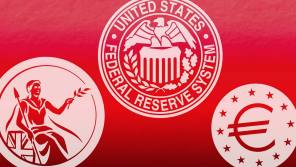

This time last year, who would have thought that investors around the world would be glued to the outcome of the Dutch election?
But glued we were – not because we have suddenly become interested in the ins and outs of Dutch policy, but because another populist, anti-European victory would have had significant implications for the European Union, particularly with the French elections just around the corner.
In fact, many fund managers and strategists cited European political risk as the top concern for the year. But, as we get through the first quarter, we must remind ourselves of the economic fundamentals of the region and how the elections are shaping already.
Dutch election result
The lower-than-expected share of the votes won by Geert Wilders’ Party for Freedom (PVV), and the relatively high turnout – 77.7 per cent – suggest that many pro-European Dutch voters were concerned about this outcome.
The PVV had been the leading party in the polls until days before the elections, but lost out to the People’s Party for Freedom & Democracy (VVD) – led by current prime minister Mark Rutte – which took 33 seats in the lower house.
The Dutch elections signifies what could be seen throughout 2017: populism had its peak in 2016. When looking at the polling data for populist parties across Europe the highest levels of support were seen last year, not now. Syriza in Greece, Podemos in Spain, Five Star Movement in Italy and Alternative for Germany are seeing lower support than their peak.
All eyes are on France now, where everything is still to play for.
The National Front’s Marine Le Pen’s popularity has declined slightly since the start of March after the European parliament reported that she may have misused European funds to employ two of her assistants.
Meanwhile, support for Emmanuel Macron has been increasing, with the latest polls crediting him with 25.5 per cent of the votes – 0.5 per cent ahead of Le Pen. This surge in the polls can be attributed to François Bayrou’s decision in February to support him, instead of standing in his own right.
If Ms Le Pen and Mr Macron come out as winners of the first round, as the polls suggest, the National Front has, in theory, only a small chance of winning in the second round.
In the past, in spite of good results in the first round, the National Front has never secured the presidency, as other parties have thrown their support behind the rival candidate. Most recent polls confirm that Mr Macron would win in a second round against Le Pen.
However, as we move towards the first round on 23 April, voting intentions could still change significantly.
The main candidates will have to defend their programmes in television debates, scheduled in the coming weeks, and history has shown that these debates can be game-changers.
At this stage, based on the polls and the analysis of voter behaviour in past elections, a populist victory looks unlikely, albeit not impossible. This, together with the outcome of the Dutch ballot, strengthens the case for European equities.
European equity performance
On a valuations basis, European equities look very attractive. For European equities to really start to perform, companies will need to deliver on earnings growth.
The good news is that after five years of earnings expectations being consistently revised downwards, downgrades to earnings expectations have finally stopped this year and are even being revised slightly higher.
Despite the strong earnings and valuations cases, with so much riding on the French result – and with Germany going to the polls later this year – we are all likely to be hooked on European politics for a while.
Nandini Ramakrishnan is a global market strategist at JP Morgan Asset Management



